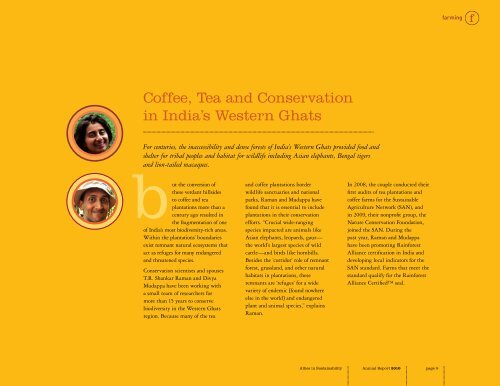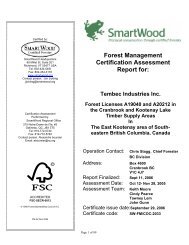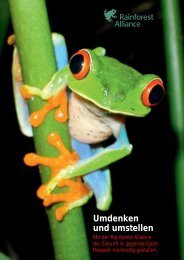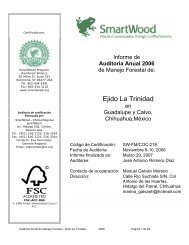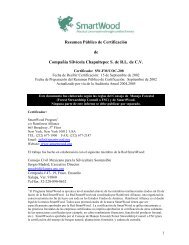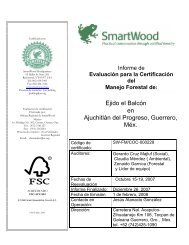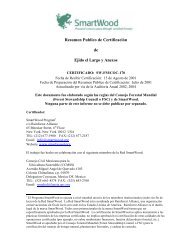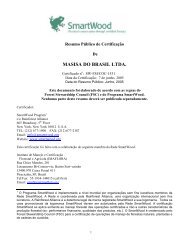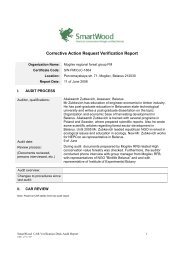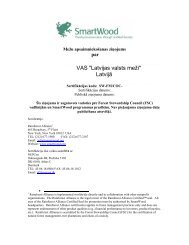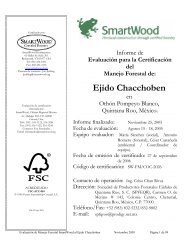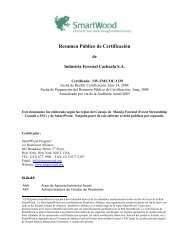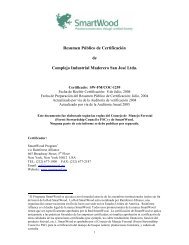Annual Report - Rainforest Alliance
Annual Report - Rainforest Alliance
Annual Report - Rainforest Alliance
Create successful ePaper yourself
Turn your PDF publications into a flip-book with our unique Google optimized e-Paper software.
Coffee, Tea and Conservation<br />
in India’s Western Ghats<br />
For centuries, the inaccessibility and dense forests of India’s Western Ghats provided food and<br />
shelter for tribal peoples and habitat for wildlife including Asian elephants, Bengal tigers<br />
and lion-tailed macaques.<br />
ut the conversion of<br />
these verdant hillsides<br />
to coffee and tea<br />
plantations more than a<br />
century ago resulted in<br />
the fragmentation of one<br />
of India’s most biodiversity-rich areas.<br />
Within the plantations’ boundaries<br />
exist remnant natural ecosystems that<br />
act as refuges for many endangered<br />
and threatened species.<br />
Conservation scientists and spouses<br />
T.R. Shankar Raman and Divya<br />
Mudappa have been working with<br />
a small team of researchers for<br />
more than 15 years to conserve<br />
biodiversity in the Western Ghats<br />
region. Because many of the tea<br />
and coffee plantations border<br />
wildlife sanctuaries and national<br />
parks, Raman and Mudappa have<br />
found that it is essential to include<br />
plantations in their conservation<br />
efforts. “Crucial wide-ranging<br />
species impacted are animals like<br />
Asian elephants, leopards, gaur—<br />
the world’s largest species of wild<br />
cattle—and birds like hornbills.<br />
Besides the ‘corridor’ role of remnant<br />
forest, grassland, and other natural<br />
habitats in plantations, these<br />
remnants are ‘refuges’ for a wide<br />
variety of endemic [found nowhere<br />
else in the world] and endangered<br />
plant and animal species,” explains<br />
Raman.<br />
In 2008, the couple conducted their<br />
first audits of tea plantations and<br />
coffee farms for the Sustainable<br />
Agriculture Network (SAN), and<br />
in 2009, their nonprofit group, the<br />
Nature Conservation Foundation,<br />
joined the SAN. During the<br />
past year, Raman and Mudappa<br />
have been promoting <strong>Rainforest</strong><br />
<strong>Alliance</strong> certification in India and<br />
developing local indicators for the<br />
SAN standard. Farms that meet the<br />
standard qualify for the <strong>Rainforest</strong><br />
<strong>Alliance</strong> Certified seal.<br />
Allies in Sustainability <strong>Annual</strong> <strong>Report</strong> 2010 page 9<br />
farming f


